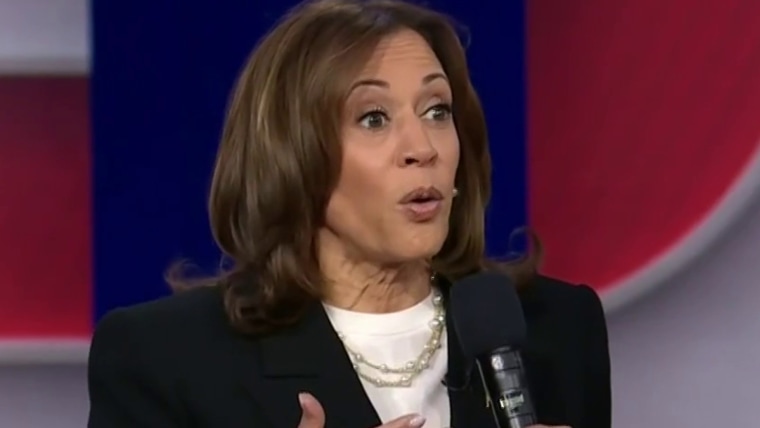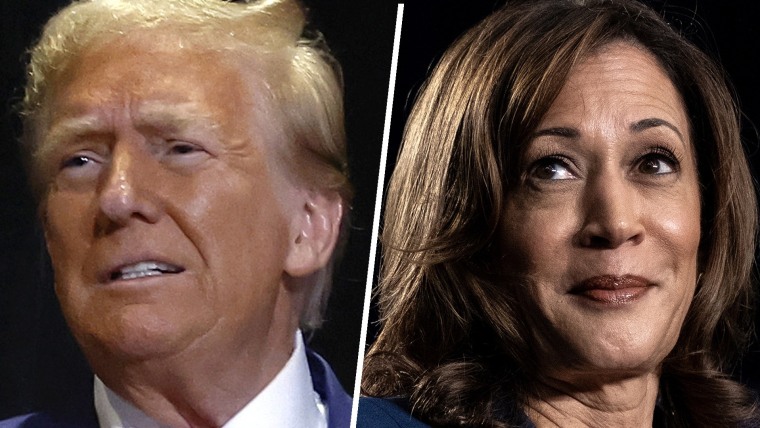“Do you think Donald Trump is going to win?”
For months I’ve been asked this question nearly every day by friends, family, neighbors, acquaintances at parties, and readers. My response is always the same: “I don’t know: All the data indicates this is a coin-toss election.”
After such a dramatic roller coaster of an election season — Trump surviving assassination attempts; President Joe Biden dropping out; Vice President Harris stepping in and surpassing Trump in the polls; and Trump closing the gap with Harris in these final weeks — it’s understandable that people are curious about what supposed political experts think will happen next.
If you fear a crisis for the republic brought on by Trump’s return to office, then the crisis is already here.
But the tone — and frequency — with which I hear the question suggests something more than just curiosity. It betrays anxiety. The manic attention paid to the polls isn’t just about how close the race is, but how high stakes it is. Many liberals and conservatives are addicted to watching minute-by-minute analysis of battleground surveys in an attempt to get a sense of how much they should emotionally prepare themselves for a possible Trump victory.I’m happy to report there is a remedy for this feeling: step away from the ghastly election needles and get more involved in the political process.
Polls are important tools for democracy, but the popular culture surrounding polling can undermine democracy. It’s important for citizens to understand each other’s attitudes and how they change over time. But incessant tracking of who’s up and who’s down and microanalysis of demographic shifts can transfix people in unhealthy ways. Democracy becomes gamified, and many of those who consider themselves politically engaged become passive spectators.

The reality is that the polls have long told us what we needed to know: this election is so close, there is no way to responsibly predict its outcome. From the vantage point of a citizen, everything else is noise. This will likely be, even more so than other recent elections, a race determined by turnout.If you fear a crisis for the republic brought on by Trump’s return to office, then the crisis is already here. A man whose former colleagues describe as a fascist is within striking distance of winning back the White House. The high plausibility of his success — propped up by the conviction of tens of millions of supporters — provides a lot support to the argument that democracy is losing.
It is imperative, then, to find a way to win that argument. No, not on social media. But on the ground in communities where votes are going to matter most. There are doors to be knocked, fellow citizens to be listened to and talked to. There’s no shortage of ways to participate in organized democratic efforts beyond just casting a ballot. Anyone who means what they say about fearing what could happen come Election Day should view voting as woefully insufficient for the challenge at hand.
This is true beyond just this election — and true regardless of how this election turns out. It is crucial for people who care about freedom from tyranny, economic exploitation and ecological catastrophe to unlearn the culture of hyperindividualism and political helplessness that prevails in capitalist democracies. In America, people predominantly see themselves as isolated individuals observing the political class, segments of which they periodically vote in and out of office in mostly binary contests. Many people confuse political hobbyism with political engagement, and let economic elites and their allies stack the deck when it comes to the vast majority of policy decisions.
There is an alternative. Think outside of the strict confines of a voting booth. Allow your fear and your hopes to move you. Liberals would be wise to look to their left in thinking about what it takes to fight plutocrats and right-wing demagogues who scapegoat the most marginalized among us. Form popular power by working in concert with co-workers, neighbors, friends and other groups with shared interests to build institutions that harness the will of the people outside the two major parties. These networks are critical for the long-run project of expanding multicultural democracy and economic freedom. And they can also mobilize in defense of whatever flawed version of democracy that currently exists.
What I notice among people who spend time on activism is that they sound more optimistic. This isn’t to say that they don’t experience anxiety about the future, or that they’re naive about the daunting odds that the left faces. A lot of them are exhausted. But putting in work gives people pride, grit and agency. It allows people to see firsthand what it takes to build mass power — and how doable it is if enough people get on board. It certainly beats watching a horror movie unfold on a screen.

